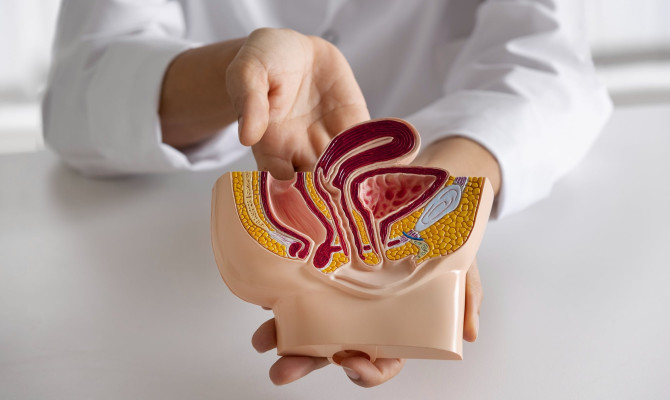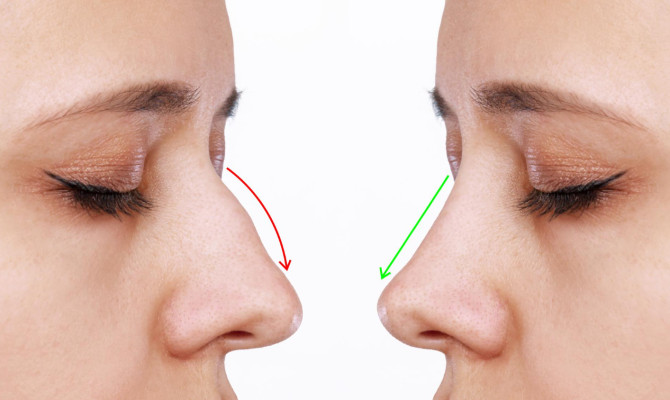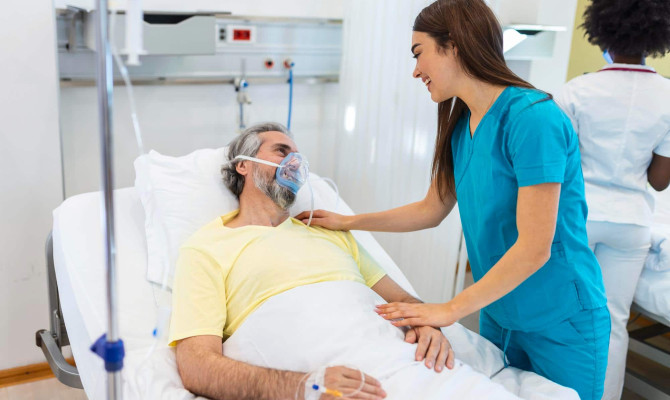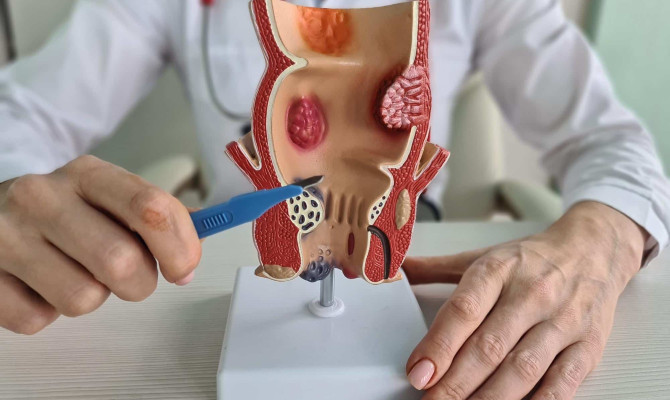Understanding the Causes, Symptoms, and Treatment of E. coli Infection

- E. coli
- 27 Sep 2023
Overview
What is E. coli infection?
Escherichia coli (E. coli) infection is a kind of bacterial infection that is brought on by strains of the Escherichia coli bacterium. The presence of majority of E. coli strains are found to live in the intestines of both humans and animals and are typically not harmful.1Overview| Researched based study from Mayoclinic.org This bacterial infection spreads through the intake of food or water which is contaminated. It begins by showcasing visible symptoms like pain in the abdomen area, or increased body temperature leading to fever.
In some situations, this bacterial infection interacts with other parts of the body and leads to severe complicated forms as soon as it spreads, such as Urinary Tract Infections, or Respiratory and breathing problems. It can occur in a child as well as in elderly people.
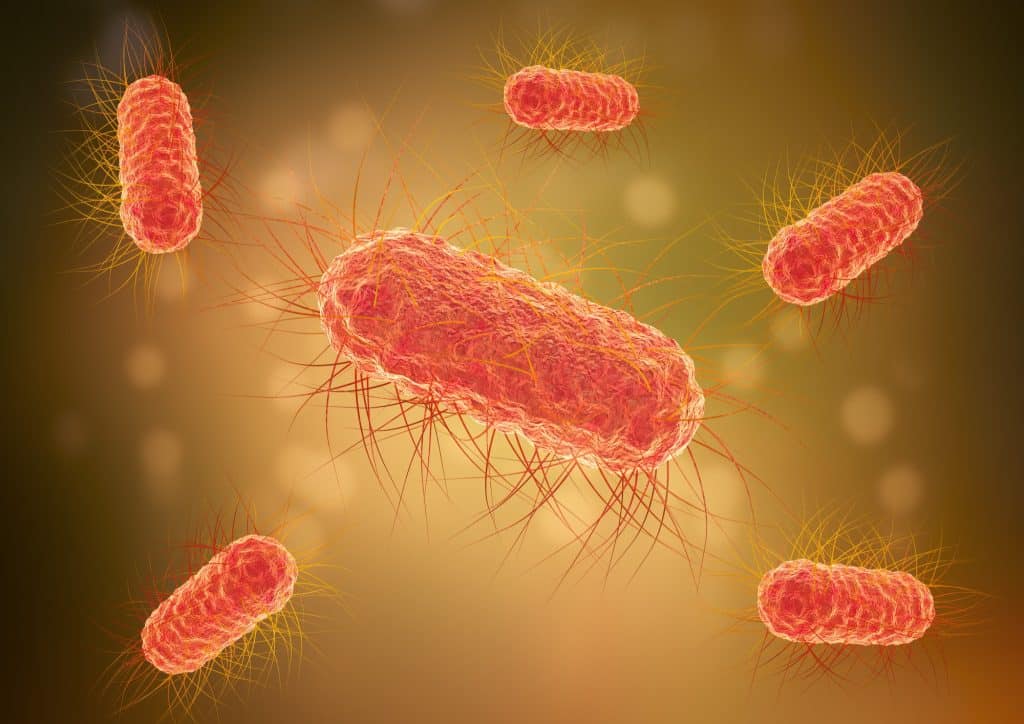
Causes
What are the major causes of E. coli infection?
The following are some important causes of E. coli infections:
- Consuming contaminated food and water
- Poor hygiene
- Person to person transmission
- Contact from animal
- Environmental causes
Contaminated Food and Water
- Consumption of contaminated water or unhealthy food is one of the major causes of one to develop E. coli infections. This may happen as a result of incorrect food product processing, or storage, or could be because of undercooked food, it can also be because of the presence of certain bacteria in unpasteurized milk or juice which if consumed, lead to E. coli outbreaks.2Causes| Researched based study from Healthdirect.gov
Poor Hygiene Practices
- Our hands which are the most interactive part of the body, carry the most bacteria on them; if not cleaned properly before taking a meal, the bacteria on our hands may interact with food and get transferred into the body which later can spread the E. coli bacterial infection.
Person-to-Person Transmission
- E. coli infections can pass from one person to another,1Causes| Researched based study from Mayoclinic.org especially in environments with poor hygiene standards. This can happen in settings like homes, daycare facilities, schools, or other places where people interact frequently.
Animal Interaction
- E. coli infection can be transmitted to humans through animal feces. If one is having direct contact with animals, such as petting or handling farm animals, it can put a person at risk for contracting the E. coli bacteria.
Environmental Contamination
- On the land where crops are grown, if there’s a presence of contaminated water that may come in contact with the crops can to cause E. coli contamination in farms and crops, ultimately affecting the person who is consuming it.
Not all acids and bacteria are bad for health, there are certain bacteria and acids which occur naturally within our body and are necessary for overall health, similarly, presence of certain types of E. coli strains are not harmful and most of them are safe, and occur naturally in intestines of humans and animals.
Symptoms
What are the primary signs and symptoms of E. coli infection?
A person who has been affected by E. coli bacterial infection, may experience different symptoms within 10 days after interacting with the bacteria.
The following are typical symptoms and signs of an E. coli infection:
Abdominal Pain
- The presence of E. coli bacteria causes inflammation in the gastrointestinal tract and one may feel muscle cramps and irritable pain in the abdomen area because of it.3Symptoms| Researched based study from Nlm.nih.gov This pain can range with a severity of mild to severe.
Nausea and Vomiting
- The E. coli bacteria present in the stomach, releases toxins which affects the delicate lining around stomach, and ultimately affecting the functioning of the normal digestive system. This triggers the vague nerve, causing nausea and vomiting. Or sometimes, the body’s immediate immune response to bacteria when happens, it causes release of cytokines that affects brain, and triggers the feeling of nausea.
Fever
- With the release of the body’s immune response i.e., Cytokines, the body’s internal thermostat, known as hypothalamus (which maintains body temperature) gets triggered and ultimately causes fever, which is not very high (less than 101 degree Celsius).4Symptoms| Researched based study from Cdc.gov This is because the body mounts a defense against bacteria by raising the body temperature such that an unfavorable environment is created, and further bacterial growth is stopped.
Fatigue
- Throughout the course of the infection, generalized weakness and fatigue may be felt. This is because the body’s immune system is majorly involved in fighting off with the bacteria, which significantly causes loss of energy, and the person may feel weak and tired due to it.
Loss of Appetite
- The presence of E. coli infection in stomach causes an interference with the body signals that regulate feeling of hunger and causing loss of appetite or a decrease in appetite. Along with it, the release of cytokines which were induced as a defense against infection, can to suppress appetite.5Symptoms| Researched based study from Mountsinai.org
Diarrhea
- One of the main signs of an E. coli infection is diarrhea. The E. coli bacteria interfere with the normal absorption of water which leads to an imbalanced fluid secretion, beginning with watery stools before changing to bloody or mucous stools.6Symptoms| Researched based study from Clevelandclinic.org
Hemolytic Uremic Syndrome (HUS)
- In severe cases, particularly when the strain of E. coli involved is O157:H7, there is a chance of developing this complication. Anemia, low platelet count, and kidney failure can all be brought on by HUS. Children, the elderly, and people with weakened immune systems are more likely to experience it.
Risk
Who are at risk?
The likelihood of contracting an Escherichia coli (E. coli) infection can be influenced by a number of factors.
Here are a few typical risk factors for E. coli infections:
Young children
- In young children, due to the under developed immune systems and the possibility of exposure in daycare centers, young children under the age of 5, and older adults have an increased risk for E. coli Infection.1Risk| Researched based study from Mayoclinic.org
People with weak immunity
- People who’ s immune systems have been already compromised, such as those who have chronic illnesses, or HIV/AIDS or if they are receiving immunosuppressive medications, are more likely to contract E. coli infections. Their immune system may not be strong enough to fight off against bacteria and able to eradicate it, which can take serious complications.
One with poor hygiene
- People who don’t practice good hygiene like not washing hands properly especially before taking a meal, are more prone to E. Coli infection, as this bacteria spreads more frequently in unhygienic areas.
Visitors and caretakers of patients
- The risk of transmission is increased by close contact with an E. coli-infected person, particularly in residential, daycare settings or in office.
People works with animals
- Working with animals in close quarters, such as in farming, veterinary medicine, or with livestock, increases the chance of coming into contact with the E. coli bacteria.
Prevalence
What is the prevalence of E. coli infection?
The prevalence of E. coli infections can vary depending on the bacterial strains and the geographic location. Important information regarding the frequency of E. coli infections includes the following:
- Global Impact: E. coli infections are common and have an impact on people all over the world. E. coli infections can occur sporadically and in outbreaks in both developed and developing nations.
- Foodborne Outbreaks: In numerous nations, reports of foodborne E. coli outbreaks have been made. These outbreaks have been linked to contaminated food items, including raw vegetables, unpasteurized milk, unpasteurized juice, and contaminated water sources.
- Waterborne Infections: In areas with insufficient water treatment infrastructure or subpar sanitation standards, contaminated water sources, including recreational water bodies and drinking water supplies, can increase the risk of E. coli infections.
- Community and Institutional Settings: Person-to-person transmission of E. coli may occur in community settings like homes, schools, and daycare facilities. E. coli outbreaks can also occur in institutional settings like hospitals and long-term care facilities.
- Seasonal Variation: The prevalence of E. coli infections varies seasonally, with higher rates seen in the warmer months. This might be explained by elements like an increase in outdoor activity, modifications to dietary habits, or adjustments to how the bacteria behave in various environments.
- Vulnerable Populations: Some people are more prone to severe E. coli infections and their side effects, such as hemolytic uremic syndrome (HUS), including young children, the elderly, and people with compromised immune systems. There may be a higher prevalence of severe cases requiring medical attention in these groups.
- Monitoring and Reporting: Different nations have different monitoring and reporting procedures for E. coli infections. While some nations may have robust surveillance systems in place to monitor outbreaks and respond to them, others may only have scant information available on the frequency of E. coli infections.
Prevention
What are the preventive measures for E. coli infection?
It becomes necessary to prevent and lower the further risk of development of Escherichia coli (E. coli) bacteria.
Certain key precautions that can reduce the risk of E. coli infection are as below:
Completely cook the meal
- Food like meat, pork, beef and other poultry products must be cooked completely until they reach their safe internal temperatures.7Prevention| Researched based study from Cdc.gov
Prevent cross-contamination
- One need to keep raw meat away from other foods while it is being prepared and stored. Cutlery, plates, and cutting boards for raw and cooked foods should all be different.
Wash fruits and vegetables
- Rinsing and washing off fruits and vegetables is very important before consumption,6Prevention| Researched based study from Clevelandclinic.org since they are more grounded with the soil and possibly it may contain disease spreading bacteria. Washing will remove such bacteria, and this will further prevent bacterial contamination.
Drink Pasteurized Products
- Consumption of only pasteurized milk, juices, and other dairy products is recommended,1Prevention| Researched based study from Mayoclinic.org because there can be a chance that unpasteurized milk products may contain E. coli bacteria.
- It is also advised to complete boil the milk before use, in order to remove any existent bacteria.
Thorough handwashing
- Cleaning your hands with soap and water must be done before eating food, after using the restroom, or changing diapers of children.1Prevention| Researched based study from Mayoclinic.org This frequent hygiene practice is an also prevent other disease spreading bacteria.
- It is also recommended to wash hands before and after handling and touching animals.8Prevention| Researched based study from Cdc.gov In situations where water isn’t readily available, using alcohol-based hand sanitizers (with at least a 60% alcohol content) is recommended before performing any activity that has interaction of hands to mouth.
Drinking clean water
- Ensure you are drinking clean water. Drink water from reputable and trustworthy sources such as water from RO Filter or boiling before drinking. If drinking from packaged water bottle, make sure to check the date as well the seal before drinking.
Good hygiene
- One should always practice good hygiene whether in a public where or to reduce the risk of contamination, practice good hygiene in both private and public settings.
Pet hygiene
- Make sure that your pets are given the proper care and sanitation. Regular bathing and grooming which involves cleaning the fur is also necessary. Make sure to clean and sanitize the places such as cages or mats where they often sit, eat and sleep.
Buy from Trusted Sources
- Purchasing food products from reputable producers, merchants ensures that the food product one is purchasing adhere to appropriate food safety protocols. This includes buying loose sugar, wheat, cereals etc.
Treatment
What are the effective management and treatment options available for E. coli infection?
In order to help the body’s immune system, fight off the infection and manage the symptoms of an Escherichia coli (E. coli) infection, following are crucial components of E. coli infection treatment:
Hydration
- It’s important to rehydrate in order to avoid the dehydration that diarrhea and vomiting can cause. Maintaining hydration levels can be facilitated by consuming plenty of water, oral rehydration solutions, and clear liquids.
Sleep
- Enough sleep enables the body to heal and fight off the infection and it is recommended to have at least 8 hours of sleep.
Avoiding Anti-Diarrheal Drugs
- Anti-diarrheal drugs are typically not advised as they can slow the body’s ability to rid itself of bacteria. However, advice will be given by medical professionals based on each patient’s unique situation.2Treatment| Researched based study from Healthdirect.gov
Antibiotics
- Antibiotics may be prescribed in severe cases or when complications like hemolytic uremic syndrome (HUS) are present. Antibiotic treatment for E. coli infections is not common, though, and should be chosen by medical professionals based on the unique details of the case.
Monitoring and Medical Intervention
- Healthcare professionals may closely monitor people with severe E. coli infections, especially those who are more likely to develop complications, such as children, older adults, and people with compromised immune systems. Hospitalization and specialized medical care might be necessary in cases of HUS or other severe complications.
Prognosis
Prognosis of E. coli infection
- Most cases of Escherichia coli (E. coli) infections have a good prognosis and resolve without any long-term consequences. Mild to moderate infections typically last for about a week, and they can be treated with supportive care and enough hydration.
- But certain strains of E. coli such as E. coli O157:H7 are found to be more harmful and can cause severe complications such as developing hemolytic uremic syndrome (HUS).
- In such type of situations immediate medical attention is required, and it is found that, young children and elderly are more prone to this bacterial infection.
- It can also occur to those who have weak immune system and it. Therefore, general health and immune system of the patient are the important factors that affect the prognosis.
- During the visit at the clinic/hospital, the healthcare professional will recommend certain medications and treatments which must be religiously followed and practiced in order to reduce and remove the infection from the body.
- Although the prognosis for most E. coli infections is good, it’s important to keep in mind that every case is unique and that some people may experience more severe symptoms or complications.
- It is essential to adhere to precautions and seek medical care when required to lessen the risk of E. coli infection.
Any feedback on this article?
 This Articles content was accurate
This Articles content was accurate Very Informative Article
Very Informative Article I have a question or a comment
I have a question or a comment
 This article contains inaccurate content
This article contains inaccurate content This article was not helpful
This article was not helpful I have a question or a comment
I have a question or a comment
We appreciate your helpful feedback!
Checkout our social pages
References
-
Mayo Clinic
E. coli | Overview | Causes | Risks | Prevention
-
Health Direct
E. coli infection | Causes | Traetment
-
National Library of Medicine
Escherichia coli Infection | Symptoms
-
Centers for Disease Control and Prevention
E. coli (Escherichia coli) | Symptoms
-
Mount sinai
E. coli enteritis | Symptoms
-
Cleveland Clinic
E. coli Infection | Causes | Symptoms | Prevention
-
Centers for Disease Control and Prevention
E. coli (Escherichia coli) | Prevention
-
Centers for Disease Control and Prevention
Prevent E. coli from animals with clean hands | Prevention













